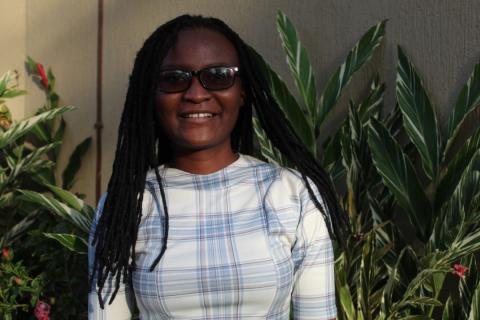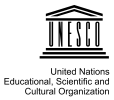
By Nelson Ruto
Brenda Namata has had quite the run, building a resumé and skillset so formidable, they weighed in heavily to win her a scholarship with the International Training Programme (ITP) on media development in Democratic frameworks, by Swedish government agency— Sida.
Through cooperation with civil society, multilateral organisations, public agencies and the private sector, Sida aims at working towards sustainable development and helping to improve living conditions amongst communities in poverty and/or under oppression. These, they believe, surface as a result of transparent, efficient and democratic state administration, under the rule of law. Amongst their contributions to this ideal is the ITP in question.
Though Namata shares excitement presently to be a part of this programme, she admits to having felt very intimidated initially, wondering how she would fit in. This, owing to the fact that she is "the youngest, least educated and (least) experienced." amongst those selected. Typically, "these were people who hold masters degrees, are highly experienced...people who hold influential positions within organisations that can influence national policy towards improvement of the media space..." as demanded by the selection criteria. And yet here she was, an undergraduate with a mountain of expectation.
How then did she make the cut?
"Investing very much in myself beyond the classroom boundaries." She says that it all started in 2019 at the Uganda Radio Network (URN) where she did an internship and later freelanced, learning from veteran journalists in the newsroom as she reported on court, human rights and security, owing to an inclination towards legal knowledge. She supplemented this by attending skills building trainings offered at URN, key amongst which was writing.
From here, she volunteered 'strategically', often in the public relations and communications departments of organisations such as the Higher Education Students Financing Board, Makerere School of Public Health and Uganda Media Women's Association where she currently works as a Communications Officer.
From all these, she grew proficiency and knowledge in science communication, advocacy in gender equality communication as well as media policies (both statutory and self-regulatory), writing and research. During all these, she highlights prime contributors to her growth: her mentor Dr. Adolf Mbaine and Executive director, Uganda Media Women’s Association, Margaret Ssentamu who shared the ITP opportunity. Important to her also is working hard in class to ensure that her CGPA qualifies her for scholarships.
The culmination of all these is what she enjoys today. Despite lacking in academic pedigree, the judges were particularly impressed by her "outstanding essay discussions on media policies and regulatory framework in Uganda."
What happens now?
This year-long programme brings together five countries (Uganda, Kenya, Tanzania, Zambia and Zimbabwe) each represented by five individuals who undertake 4 phases:
· First, six modules of study in the field of international policies pertaining to media framing and regulation. October- February.
· Second, a benchmarking period within five countries: Zambia, Zimbabwe, Tanzania, Kenya and of course, Uganda.
· Third, a task to develop change initiatives for improving the national landscape, based on research conducted.
· Finally, International dialogue amongst countries that shall gather in Sweden to discuss their change initiative models.
She admits that it is quite the task balancing this recent bout of success and the responsibility therein with her ongoing bachelors degree as well as her job and social life. She details that her 24hours must be well accounted for, to ensure that she delivers and that it involves a lot of sacrifice. However, it becomes manageable over time, or at least, routine. "I enjoy what I do...every bit of it...the reading, working..."
More so, there is motivation to be found in the fact that her fellow scholars esteem her as a colleague rather than a child (she jokes). "It [the scholarship] is a door opening for my career journey, value addition to my professional experience and [has] raised me to the waters of "Sharks"." Also (and not to be forgotten), she looks forward to the travel it entails.
This opportunity shall avail her mileage to achieve her dream of being a strong and competent career-woman, "sought out not only nationally but also internationally, for improvement of the field I'm professionalising in." Her ultimate goal is to contribute significantly to a better media landscape in Uganda.
"Do not limit yourself to the lecture room and library...Be a good reader to be well informed and sharpened towards writing. We as individuals carry vast potential but we are afraid of daring. Dare and learn from that result... Dare strategically!", she advises.
"We often think in the line of getting a transcript and hitting the industry after that," which she disagrees with and advises instead: "Add value to the transcript...you shall not be job hunting, but jobs shall hunt for you. Because you shall have value that speaks for itself. You shall be above the waters that everybody else who is graduating is in."
- Log in to post comments




